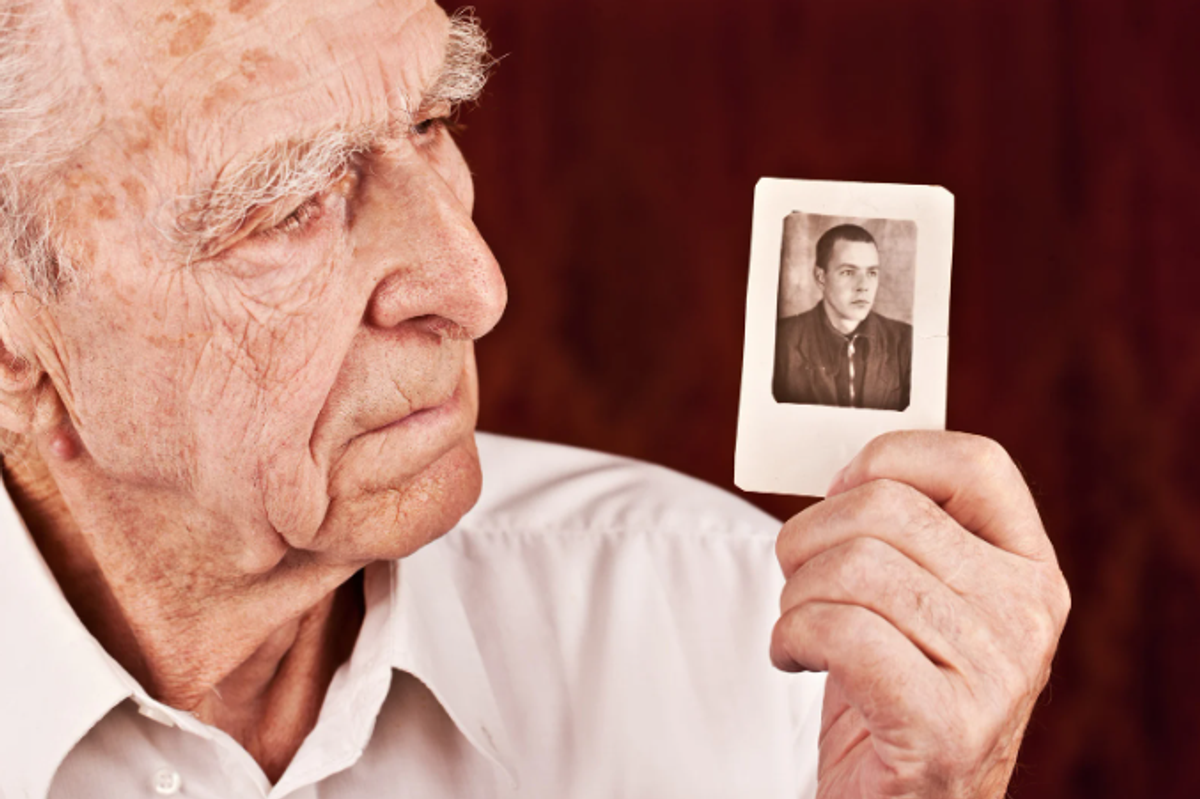Neuroscientists share how to unlock childhood memories you thought were gone forever
A simple visualization can help you recall memories you thought were gone.
An older gentleman looking at a photo.
When most people forget facts or how to do specific tasks, they believe they will never be able to recall the information again. It’s like once you forget something, it’s erased from the folds of your brain, wiped like ink from a whiteboard. However, that’s not entirely true; some memories are buried in deep parts of the brain that are harder to access, but they’re still there if you know where to look.
Researchers at Anglia Ruskin University recently created a clever illusion that allows people to access childhood memories they wouldn’t otherwise remember. They found that showing adults a photo of themselves from childhood helps them access childhood memories more easily.
“When our childhood memories were formed, we had a different body,” senior author Jane Aspell, who leads the Self & Body Lab at Anglia Ruskin University, said, according to PsyPost. “So we wondered: if we could help people experience aspects of that body again, could we help them recall their memories from that time?”

The researchers had people look at a photo of their childhood or adult face and answer questions from their childhood (up to age 11) or the last year. Those who looked at their childhood face remembered far more about their life before age 11 than those who looked at a photo of their adult self.
How to recall childhood memories you thought were long gone
The researchers concluded that when we look at photos of ourselves as children, we are more likely to recall memories from our childhood because our brains encode memories based on the state of our bodies at the time.
“All the events that we remember are not just experiences of the external world, but are also experiences of our body, which is always present,” the study’s lead author, Utkarsh Gupta, told Anglia Ruskin University. “We discovered that temporary changes to the bodily self, specifically, embodying a childlike version of one’s own face, can significantly enhance access to childhood memories.”
Therefore, if you’re trying to remember what you dressed up as for Halloween in the second grade or recall the name of your first babysitter, stare at a photo of yourself as a child, and you’ll be much more likely to recall the memory.

How to revive memories from your past
The study mirrors one from two years ago that found a similar result. If you are trying to recall a past memory but can't bring it up, re-experiencing something associated with it can trigger the recall of the forgotten details. So, if you were trying to remember what all the rooms in the home you grew up in looked like, find a photo of the front of the house, and you will be more likely to recall what it was like to walk through the kitchen, bathroom, or dining room. If you are trying to remember who you went camping with in the eighth grade, turn on some music from that era, and you'll be more likely to recall their names.
The good news about these studies is that we shouldn’t think that just because we can’t recall something immediately, that it isn’t somewhere in the back of our minds, just waiting to be found. And that even though a memory might not pop up in the forefront of our minds, it’s still part of our subconscious and plays a role in who we are today and will be in the future.

